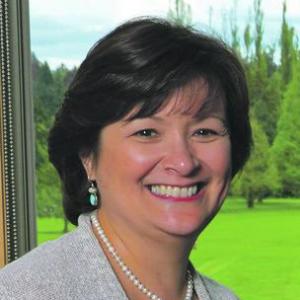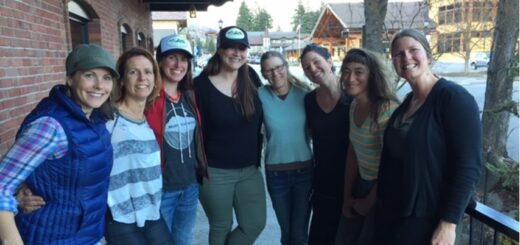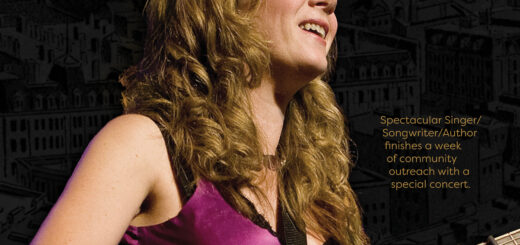Expert to speak at Pybus Oct. 25 about how altruism benefits individuals, families and the community
Growing up in the Philippines, Lorraine del Prado learned valuable lessons about empathy, compassion and the importance of being generous to her fellow human beings. In that developing country, she was confronted on a daily basis with people who were struggling to make ends meet.
Del Prado moved to the United States to attend graduate school and carved out a 30-plus year career in philanthropy that has allowed her to inspire and collaborate with individuals, families and nonprofits who want to build stronger communities. In the process, she has gained insights into how altruism brings greater peace, joy and happiness to those who give of their time and resources.
Del Prado will speak about altruism at Pybus Public Market at 7 p.m., Wednesday, Oct. 25, at an event sponsored by the Community Foundation of North Central Washington. You can register for the free talk at pybuspublicmarket.org or cfncw.org.
The Community Foundation launched a campaign called Give 10 in 2018 to encourage this kind of legacy giving with the idea that in many cases 90% of one’s estate is enough to take care of family members while 10% could be considered for the community good. As a result of this work, CFNCW now has a large group of donors committed to leave a charitable legacy and are now part of their Heirloom Society.
Del Prado said families that take the time to transfer both wealth and deeply held values to their children typically strengthen their families and the community. Setting aside money for the community allows people to make a long-term positive impact on causes that they care about.
In my conversation with del Prado, I was struck by the notion that leaving a legacy gift to benefit the community has the added benefit of strengthening the entire family. That was a connection I had not considered. When individuals or couples communicate their values to their children and model that ethos of strengthening community, those values tend to be ingrained in successive generations.
As any community volunteer will tell you, whatever you give in terms of time and resources in service of others is repaid many times over. “There’s a correlation between volunteering and spiritual and psychological well-being,” del Prado told me.
Giving back to the community in an intentional way is a way to push back against the limiting and unhealthy mindset of scarcity that pervades our society these days. Giving back is an expression of abundance and a commitment to the greater good of the community.
Estate planning can be intimidating for people as we get older, del Prado acknowledged. It requires them to get organized and decide who gets what — family members as well as the community.
But making those choices can lift a burden for those who are in their twilight years, del Prado said. Time and time again, after she works with families who go through a process of deciding what legacy to leave, she sees them being more content and joyful.
“Money is not an end but a means to an end,” del Prado said. The families that embrace the journey of planned giving are strengthened in the process.
In talking with the staff at the Community Foundation, some of the most talked-about expressions of philanthropy are small amounts given by individuals with limited resources but who are committed to the greater good.
In most cases, those with modest wealth leave more on a percentage basis than the ultra wealthy. Perhaps that’s because they see more clearly how individuals and families struggle in our community.
There’s another benefit to families openly discussing philanthropy. At a time when polarization and division are dominating the headlines, conversations about values, giving back and leaving a legacy help draw people together despite our differences, del Prado said.
The more we look for common ground with others, the stronger and more resilient our community will be.



